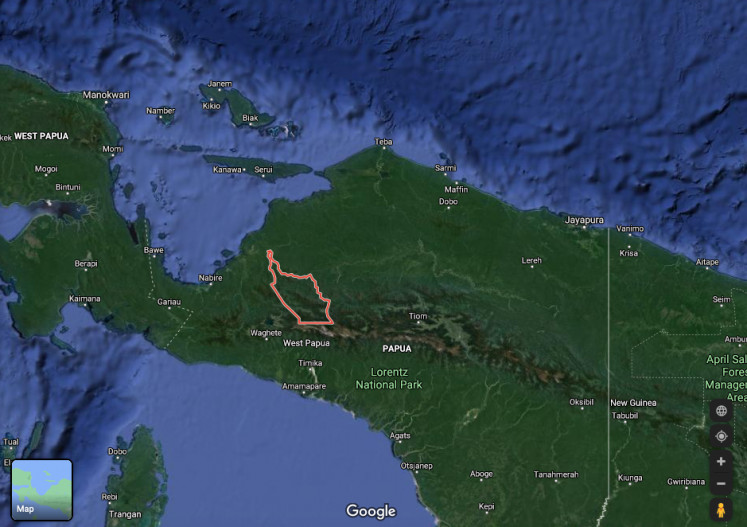Lippo ‘rides’ China’s speed train, to sink $21b nearby
Diversified conglomerate Lippo Group has joined the country’s infrastructure craze by riding opportunities to develop an integrated city, located near the planned, China-built high-speed railway project connecting Jakarta-Bandung
Change text size
Gift Premium Articles
to Anyone

D
iversified conglomerate Lippo Group has joined the country’s infrastructure craze by riding opportunities to develop an integrated city, located near the planned, China-built high-speed railway project connecting Jakarta-Bandung.
Lippo’s top management said on Thursday that it was currently working on a mixed-used development property worth Rp 278 trillion (US$ 21 billion) called “Meikarta,” located around 60 kilometers southeast of Jakarta, targeting middle-income consumers and diverse industries.
“This is the largest project in Lippo’s 67-year history,” Lippo Group CEO James Riady told reporters in Jakarta.
Meikarta will include office buildings, apartments, five-star hotels, shopping malls, hospitals and universities. For the first stage of the mega development, at least 22 million square meters of land in a corridor connecting Jakarta and Bandung will be used.
The area is surrounded by industrial areas such as Jababeka and MM2100, creating a new city that the company claimed will be the “Shenzhen of Indonesia,” where millions of cars, motorcycles and electronic products are manufactured every year.
The new integrated city will enjoy increased accessibility as the government is mulling plans for infrastructure projects around the area, including the Jakarta-Bekasi-Cikarang-Bandung high-speed railway, the Patimban deep seaport, the Kertajati International airport and the Jakarta-Cikampek elevated highway.
While Lippo’s announcement came as a surprise, the conglomerate group actually pioneered development in the area some time ago. It prepared designs for Meikarta in 2014, with physical construction — fueled by Lippo’s aim to build 100 skyscrapers — starting in January 2016.
“The first construction project will be finished in three years,” James explained, adding that the entire mega project was expected to reach completion in the next five to seven years.
To make the project even more appealing, Lippo plans to create partnerships with numerous companies, including Japanese automakers Mitsubishi Group and Toyota, as well as construction and real estate firm Sanko Soflan Holdings Co Ltd.
Between 30 and 40 local contractors will be involved in Meikarta, including Indonesia’s largest private construction firm PT Total Bangun Persada, and several state-owned companies, such as PT Wijaya Karya and PT PP.
James said the funds to finance the mega project would comprise Lippo’s own capital, loans and proceeds from pre-sales marketing. The group is upbeat the new city will hold a “mass appeal,” signaling that it will offer products at lower prices compared to the average price in the area.
The market price for the Bekasi-Cikarang corridor at present stands at Rp 18 million to Rp 20 million per square meter.
Meikarta is expected to absorb at least 65,000 workers with its construction projects. When Meikarta is completed, Lippo predicts that the area would be inhabited by up to 15 million people, allowing the absorption of 6 to 8 million workers.
In the past few years, the growth of Jakarta’s property market has stagnated amid weak consumer demand, partly due to the economic slowdown.
Property consultant Colliers International reported that the occupancy rate for office space in Jakarta’s central business district (CBD) has shown a decreasing trend as a result of oversupply.
In the fourth quarter of 2016, the office space occupancy rate in the CBD reached 84.8 percent, which was a 4.6 percent decline year-on-year.
Indonesia Property Watch (IPW) CEO Ali Tranghanda, however, expressed his optimism about the property market in Cikarang, saying that the city’s expansion will shift to that area.









